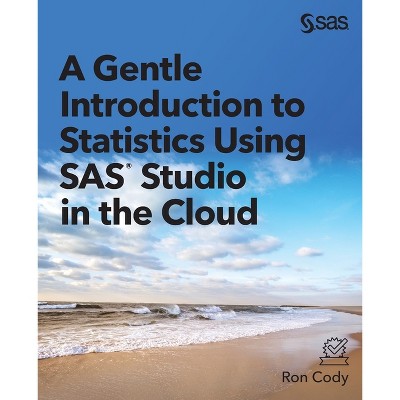Sponsored

Everyone's Business - by Amit Ron & Abraham A Singer
In Stock
Sponsored
About this item
Highlights
- Business is political.
- About the Author: Amit Ron is associate professor of political science at Arizona State University.
- 248 Pages
- Business + Money Management, Business Ethics
Description
About the Book
"The ethics of the company in a highly politicized time. Businesses are increasingly social actors. They fund political campaigns, take stances on social issues, and wave the flags of identity groups. As a highly polarized public demands political alignment from the businesses where they spend their money, what's a company to do? Everyone's Business revises our understanding of business ethics in a world of unchecked corporate power. Political theorists Amit Ron and Abraham Singer show that the increasingly human-like role of companies in modern life is both the fundamental problem and inescapable fact of business ethics: corporate power makes business ethics necessary, and business ethics must strive to mitigate corporate power. Ron and Singer argue forcefully that the primary social responsibility of the modern business is to democracy, not politics. By wielding their newfound social influence on democratic institutions--elections, public debate, protest--businesses can be legitimated forces for good. Pragmatic and urgent, Everyone's Business offers an essential new framework for how we manufacture profit--and democracy--in our increasingly divided shared spaces"-- Provided by publisher.Book Synopsis
Business is political. What are the ethics of it?
Businesses are political actors. They not only fund political campaigns, take stances on social issues, and wave the flags of identity groups - they also affect politics in their everyday hiring and investment decisions. As a highly polarized public demands political alignment from the powerful businesses they deal with, what's a company to do?
Amit Ron and Abraham Singer show that the unavoidably political role of companies in modern life is both the fundamental problem and inescapable fact of business ethics: corporate power makes business ethics necessary, and business ethics must strive to mitigate corporate power. Because of its economic and social influence, Ron and Singer forcefully argue that modern business's primary social responsibility is to democracy. Businesses must work to avoid wielding their power in ways that undermine key democratic practices like elections, public debate, and social movements. Pragmatic and urgent, Everyone's Business offers an essential new framework for how we pursue profit--and democracy--in our increasingly divided world.
Review Quotes
"Approaching a new book on the recurrent and vastly researched question on the responsibilities of business towards society, readers might wonder where the novelty might be. In Everyone's Business, Ron and Singer take a specific perspective to solve the old (and still relevant) question and apply a novel lens to provide answers: readers will not be disappointed...[the authors] show an extremely good mastery of the complexity of this interdisciplinary exploration and deliver a novel output of praiseworthy specialized academic quality."-- "Centre for Enterprise, Markets and Ethics"
"Ron and Singer [consider] businesses' democratic obligations, promoting the argument that businesses have an overarching responsibility to avoid corrupting and unduly influencing democratic procedures and principles."-- "Journal of Economic Literature"
"Everyone's Business provides excellent and needed attention to how business relates to democracy, especially with respect to its externally facing policies."--Eric W. Orts The Wharton School, University of Pennsylvania
"Everyone's Business is a contribution that brings power into the conversation about business ethics, showing how business can corrupt democratic politics."--Sarah Kaplan author of "The 360° Corporation: From Stakeholder Trade-offs to Transformation"
About the Author
Amit Ron is associate professor of political science at Arizona State University. Abraham Singer is assistant professor of business at Loyola University Chicago. He is the author of The Form of the Firm: A Normative Political Theory of the Corporation.
Shipping details
Return details
Trending Non-Fiction






Discover more options





